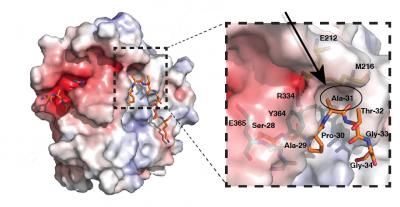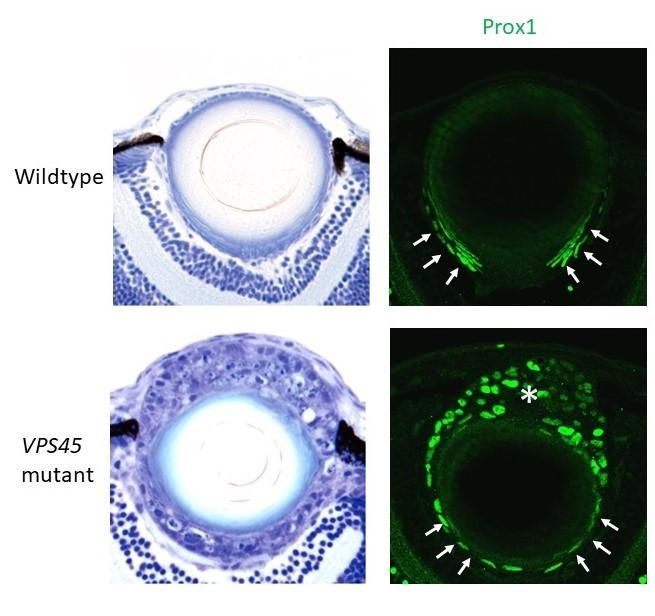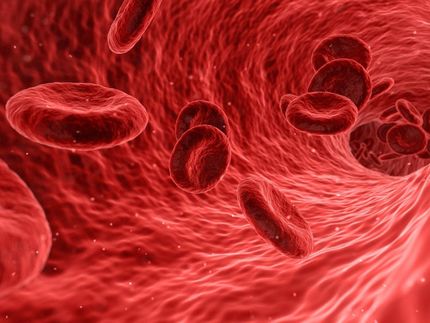How a “date” between immune cells makes rheumatism disappear
Major success: New approach for treating autoimmune diseases
Dates don’t always work out the way you would like. This is the premise on which scientists at Friedrich-Alexander-Universität Erlangen-Nürnberg (FAU) have developed a new approach towards treating autoimmune diseases. They brought two types of immune cells, B cells and T cells, together at one table – with the result that the T cell killed the B cell. The organizer of this “date” with a dramatic outcome was a medicine named blinatumomab. Killing the B cells responsible for triggering disease led to the disappearance of a severe autoimmune disease, rheumatoid arthritis (also known as rheumatism). Their findings have now been published in the journal Nature Medicine.
Normally both B cells and T cells have a key role to play in triggering autoimmune diseases. The FAU team was able to trick the T cells into killing their accomplices, the B cells. This led to a major success in treating rheumatoid arthritis, otherwise known as rheumatism.
Trials of new treatment option for patients
Approximately one in 100 people develop this disease over the course of their lifetime. “Treatment options today are generally good, but it is not possible to halt the progression of the disease in all patients,” stresses Dr. Melanie Hagen, head physician at the research clinic at Department of Medicine 3 – Rheumatology and Immunology at Uniklinikum Erlangen. “Roughly 10 to 20 percent of patients do not respond sufficiently to available treatments.” Hagen is part of a team of physicians at FAU who have trialled a new approach to treating these patients. The scientists used a medicine called blinatumomab, or BLINA for short. This is an antibody, with, like all other antibodies, two arms. In the case of BLINA, one arm connects to the B cell, and the other to the T cell.
BLINA works like a Tinder molecule: the active agent arranges a “date” between B cells and T cells by bringing them both together. “This date runs anything but smoothly, however” explains Dr. Laura Bucci, who conducted the study together with Melanie Hagen. “Quite the contrary, during the date the T cell kills the B cell.” That is not good news for the B cell, but it is a blessing for patients with rheumatism and other autoimmune diseases. B cells are largely responsible for these diseases, as they produce antibodies that trigger inflammation.
B cells have already been inhibited by medicines in the past in order to treat autoimmune diseases such as rheumatism. However, the success of previous treatments has been unsatisfactory. Enlisting the help of the T cells greatly increases the extent to which B cells are inhibited. This principle has already been used to treat leukemia caused by malignant B cells.
Surprising effect in the case of resistance to treatment
BLINA succeeds in finding B cells hidden deep within tissue. The medicine therefore ensures that even these cells come into contact with the deadly T cells. “The effect took us by surprise,” explains Prof. Dr. Ricardo Grieshaber-Bouyer, head physician of the research clinic and head of the research group. “Even in the case of extremely treatment resistant rheumatism a collapse of the inflammatory reaction occurred that resulted in a significant improvement in the disease. The results of our study give an important impetus for the continued development of these treatments for various autoimmune diseases.”
Original publication
Laura Bucci, Melanie Hagen, Tobias Rothe, Maria Gabriella Raimondo, Filippo Fagni, Carlo Tur, Andreas Wirsching, Jochen Wacker, Artur Wilhelm, Jean-Philippe Auger, Milena Pachowsky, Markus Eckstein, Stefano Alivernini, Angelo Zoli, Gerhard Krönke, Stefan Uderhardt, Aline Bozec, Maria-Antonietta D’Agostino, Georg Schett, Ricardo Grieshaber-Bouyer; "Bispecific T cell engager therapy for refractory rheumatoid arthritis"; Nature Medicine, 2024-4-26
Most read news
Original publication
Laura Bucci, Melanie Hagen, Tobias Rothe, Maria Gabriella Raimondo, Filippo Fagni, Carlo Tur, Andreas Wirsching, Jochen Wacker, Artur Wilhelm, Jean-Philippe Auger, Milena Pachowsky, Markus Eckstein, Stefano Alivernini, Angelo Zoli, Gerhard Krönke, Stefan Uderhardt, Aline Bozec, Maria-Antonietta D’Agostino, Georg Schett, Ricardo Grieshaber-Bouyer; "Bispecific T cell engager therapy for refractory rheumatoid arthritis"; Nature Medicine, 2024-4-26
Topics
Organizations
Other news from the department science

Get the life science industry in your inbox
By submitting this form you agree that LUMITOS AG will send you the newsletter(s) selected above by email. Your data will not be passed on to third parties. Your data will be stored and processed in accordance with our data protection regulations. LUMITOS may contact you by email for the purpose of advertising or market and opinion surveys. You can revoke your consent at any time without giving reasons to LUMITOS AG, Ernst-Augustin-Str. 2, 12489 Berlin, Germany or by e-mail at revoke@lumitos.com with effect for the future. In addition, each email contains a link to unsubscribe from the corresponding newsletter.
Most read news
More news from our other portals
Last viewed contents
Congenital_vertebral_anomaly
Thigmonasty
Nipple_clamp
Achilles_tendon
Archaea
Thoracoacromial_artery
Muscles_of_the_hip

'Histone code' shows how gene activity is inherited - Why is histone H3.3 associated with active genes, but histone H3.1 is not?
Michael_Behe
Soybean
Autism























































